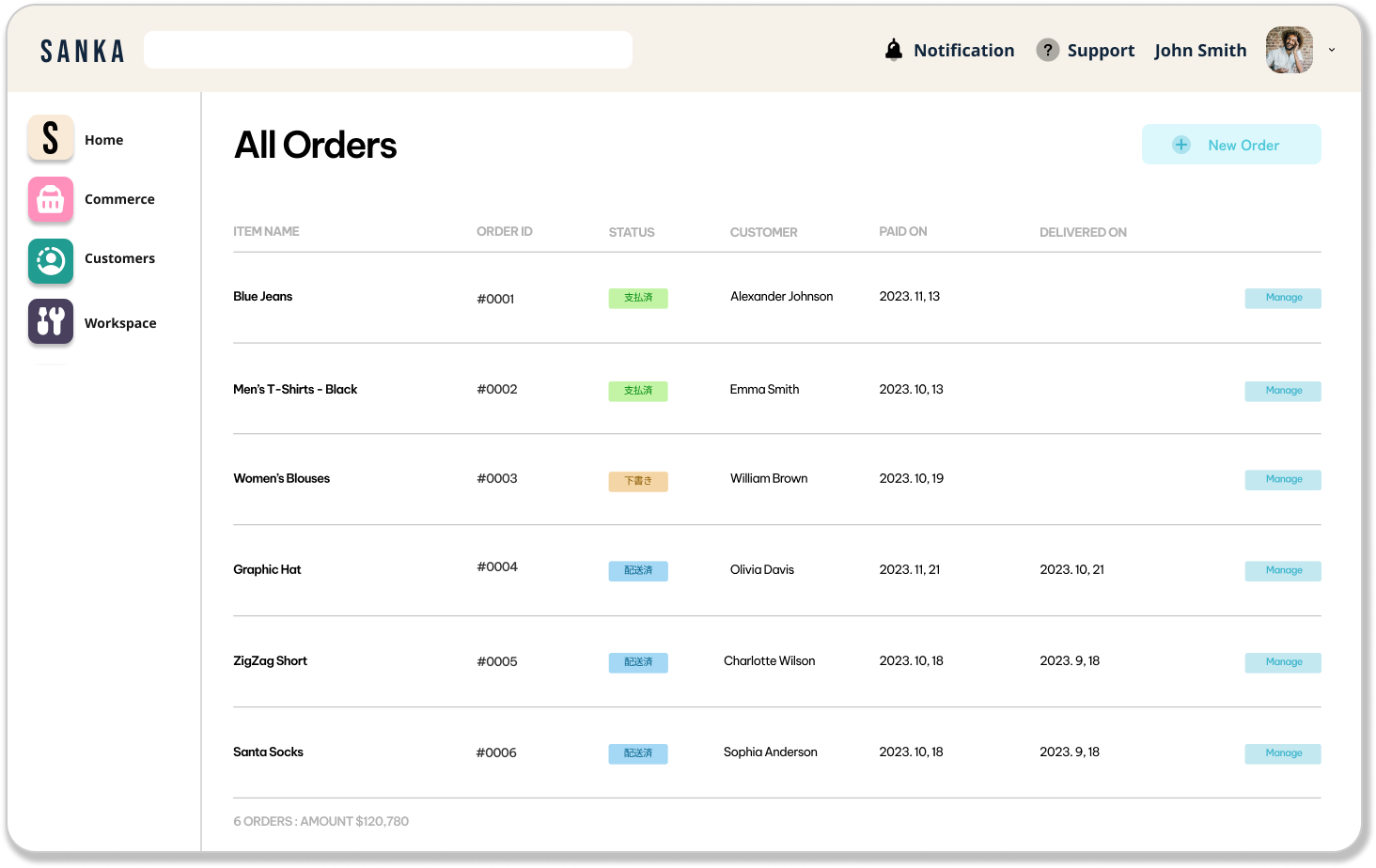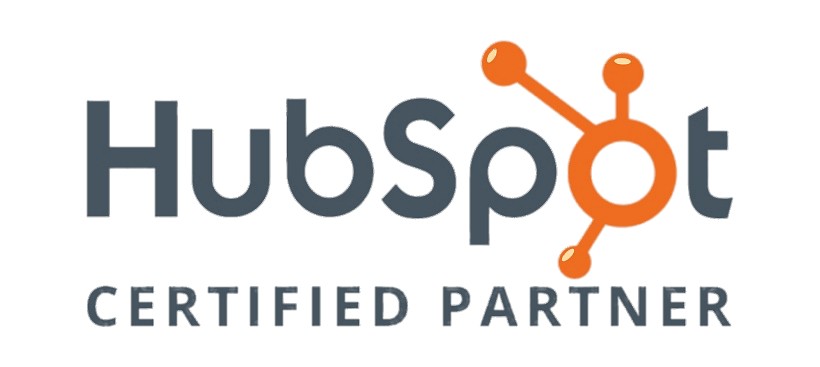Introduction
In the bustling digital era we live in, e-commerce platforms stand as the very foundation of every online retail business.
These powerful tools not only bring products to the virtual shelves but also ensure they're showcased, marketed, and sold in a streamlined, appealing manner to customers across the globe.
With the multitude of e-commerce solutions available today, choosing the best platform can seem daunting, especially for entrepreneurs and businesses looking to establish a strong online presence or grow their digital footprints.
It’s important to understand that each e-commerce platform offers a unique blend of features, benefits, and challenges.
From user-friendly interfaces to robust analytics, extensive app ecosystems to powerful customer relationship management tools, the best platform for your business will align with your specific requirements, including your technical expertise, budget, and long-term e-commerce strategy.
To oust the confusion and help you navigate through this pivotal decision, we have curated a comprehensive list of the 8 best e-commerce platforms in the market.
Whether it's the versatility of Shopify or the expansive data-driven capabilities of Sanka, each platform has something special to offer. Let's dive in and discover which building tool can turn your online dreams into a lucrative reality.
1. Sanka
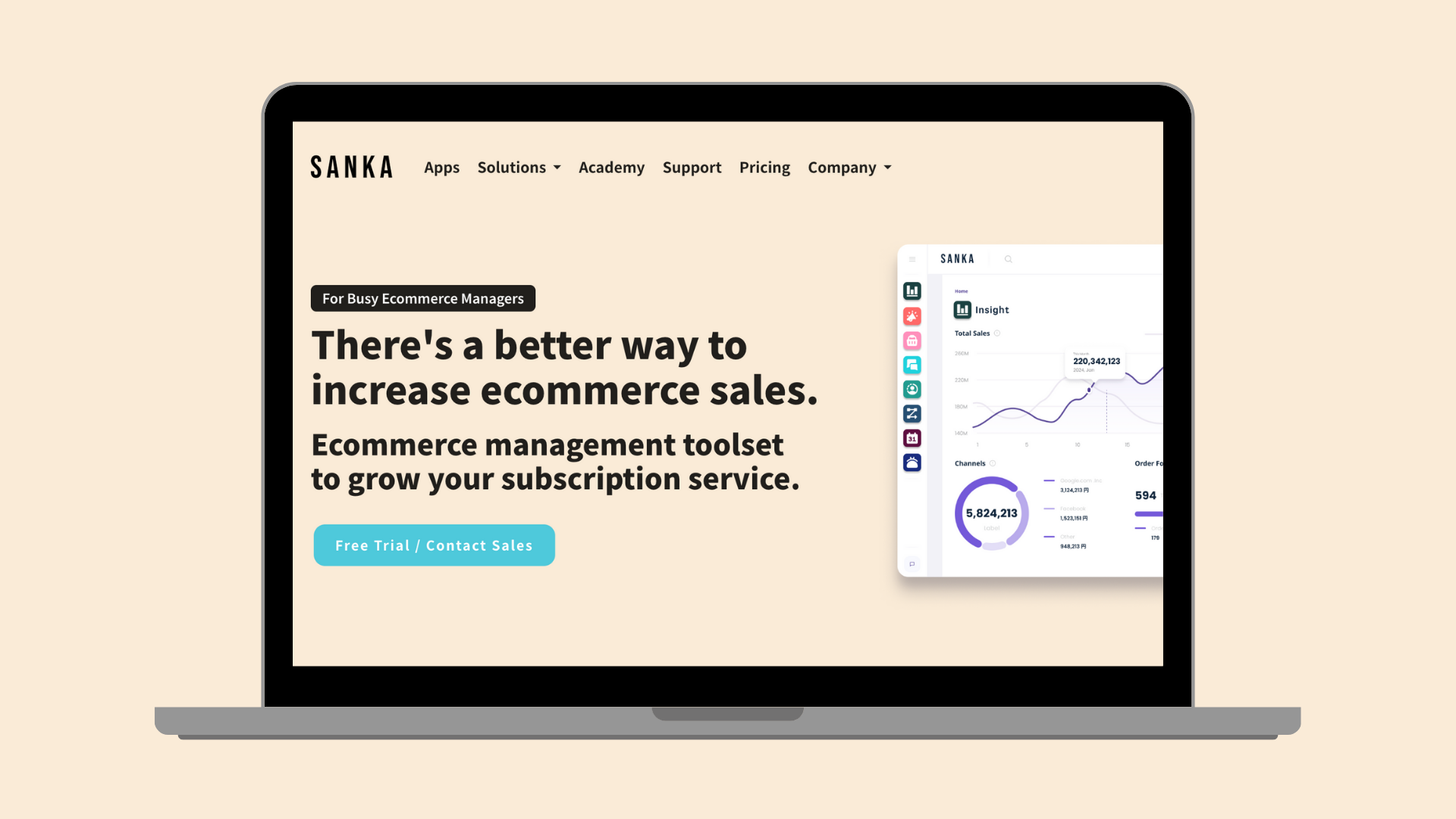
Sanka positions itself as a comprehensive ecommerce data platform, an invaluable asset for data-driven ecommerce managers looking to succeed in the highly competitive online marketplace.
As an all-in-one solution, Sanka offers services ranging from market research to CRM and order management, all designed to consolidate your ecommerce tools, automate processes, and enhance ROI.
With the promise of freeing up valuable time so you can focus on growing your revenue and profits, Sanka is considered by many as a trailblazer in ecommerce data engagement and strategy.
Key Features
- Market Research: Helps optimize products and marketing by analyzing trends, competitors, and customer feedback.
- Website Analytics: Provides insights on traffic, conversion rates, and revenue sources for quick, efficient action.
- CRM: Manages comprehensive customer data across individuals and corporations to improve user experience.
- Order Management: Synchronizes orders across e-commerce platforms and stores for peak efficiency.
Pros
- Automation: Automates tasks, reducing manual labor and increasing efficiency.
- Comprehensive Support: Offers migration services and a support team, ensuring smooth transitions and ongoing assistance.
- Cost-Effective: Flat rate of $300/month intends to be ROI positive, eliminating the need for multiple paid tools and admin staffing.
Cons
- Complexity: Might be overwhelming for newcomers unfamiliar with e-commerce data platforms.
- Limited Language Support: Primarily serves English and Japanese speakers, potentially limiting access for non-speaker users.
Sanka positions itself as a holistic partner for e-commerce businesses aiming to leverage data for success, bundling necessary tools into a single, potentially cost-effective platform.
2. Shopify

Shopify is arguably one of the most recognizable e-commerce platforms, offering a user-friendly interface and robust customization features.
It stands out as a leading e-commerce platform that simplifies the process of creating and managing an online store.
Suitable for businesses of all sizes, it provides a comprehensive set of tools to sell both online and in-person.
Its balance of simplicity, powerful features, and scalability make it a go-to choice for entrepreneurs worldwide.
Key Features
- User-Friendly Design: Intuitive setup and management processes.
- Diverse Sales Channels: Facilitates selling across multiple platforms including web, mobile, social media, and physical locations.
- Extensive App Marketplace: Offers a wide range of plugins to extend store functionality.
- Reliable Hosting: Ensures fast loading times and includes domain registration options.
Pros
- Ease of Use: Ideal for users with limited technical skills.
- Versatility: Customizable themes and extensions cater to a variety of business needs.
- Support: 24/7 customer support through multiple channels.
Cons
- Cost: Monthly fees plus transaction fees can add up, particularly with additional paid apps.
- Customization Limitations: While customizable, deep customization may require understanding of Shopify's proprietary coding language, Liquid.
3. Magento (Adobe Commerce)
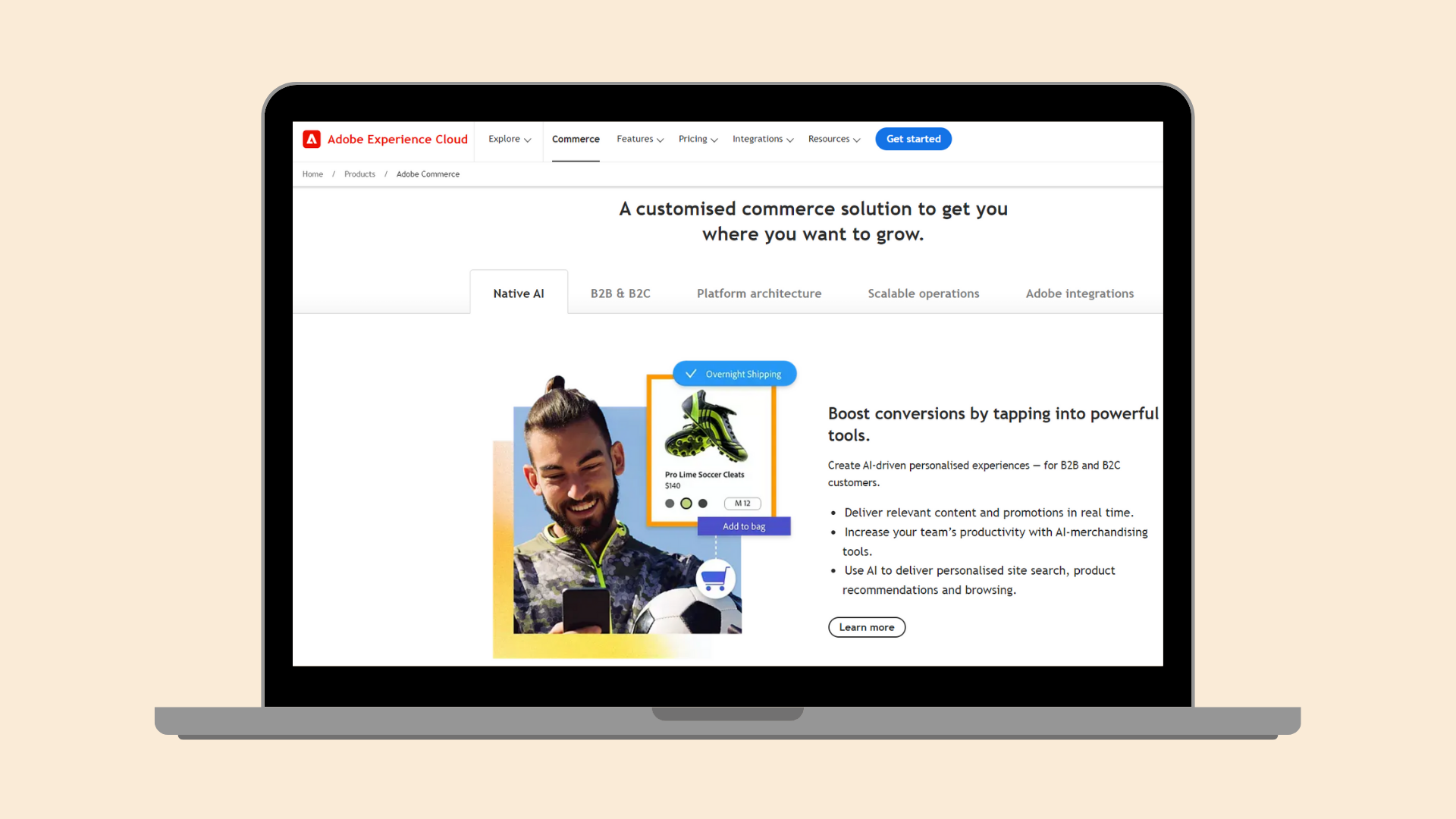
Magento, now owned by Adobe, is an open-source platform offering high levels of customization and scalability.
Favored by mid to large-sized enterprises, it provides powerful tools to create complex, scalable online stores.
As an open-source platform, Magento offers unparalleled flexibility, allowing businesses to tailor their online presence extensively to meet specific needs.
Key Features
- Customization: Access to a wide array of customization options and a vast marketplace of extensions.
- Scalability: Capable of handling a large volume of products and traffic.
- Community: Benefits from a strong global community of developers and partners.
Pros
- Flexibility: High degree of control over the user experience and backend functionalities.
- SEO Friendly: Robust SEO capabilities to optimize store visibility.
- Large Community: Support from a large network of professionals for troubleshooting and development.
Cons
- Complexity: Demands a steep learning curve and often requires developer skills.
- Hosting Requirements: Requires substantial hosting solutions, which can be costly.
- Time-Intensive: Significant time investment needed for setup, customization, and maintenance.
4. BigCommerce
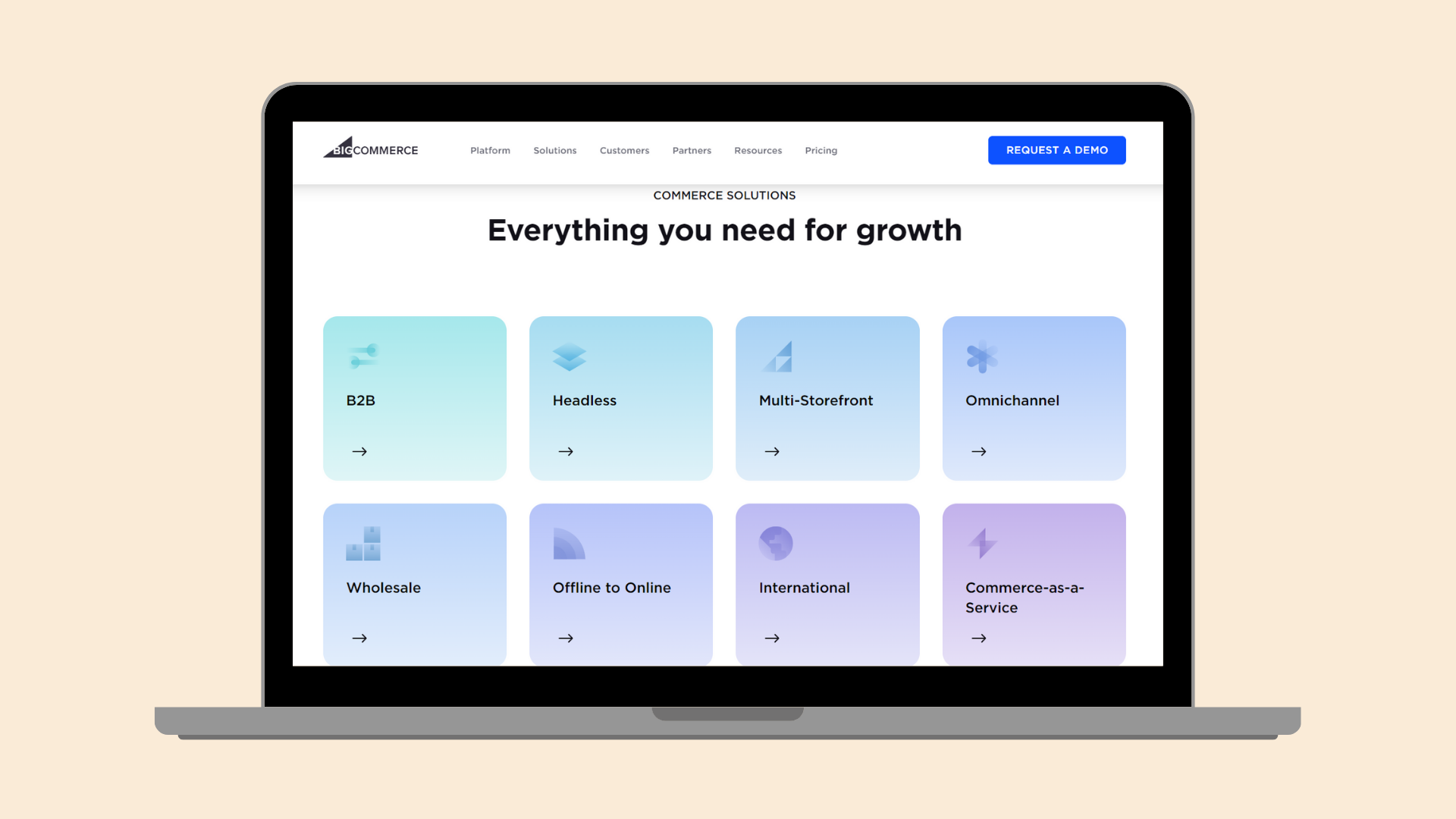
BigCommerce is a comprehensive e-commerce platform designed to help businesses easily build, innovate, and grow their online stores.
It is known for its built-in features and fewer add-ons needed, meaning less extra spending.
It suits a broad range of business sizes, offering built-in tools, customizable themes, and seamless integration with popular third-party apps and services.
Key Features
- Store Management: Simplifies the process of managing product listings, orders, customers, and shipping.
- Marketing and SEO: Built-in SEO tools and integration with popular marketing services.
- Payment and Security: Supports a wide range of payment gateways and ensures high-security standards.
Pros
- User-Friendly: Easy to use, requires minimal technical skills to set up and manage an online store.
- Built-in Features: Rich inbuilt features reduce the need for additional third-party apps.
- Support: 24/7 support through various channels.
Cons
- Pricing: Can be expensive, particularly for businesses with high sales volumes due to the tiered pricing structure.
- Theme Customization: Deep customization may require knowledge of HTML and CSS.
5. WooCommerce
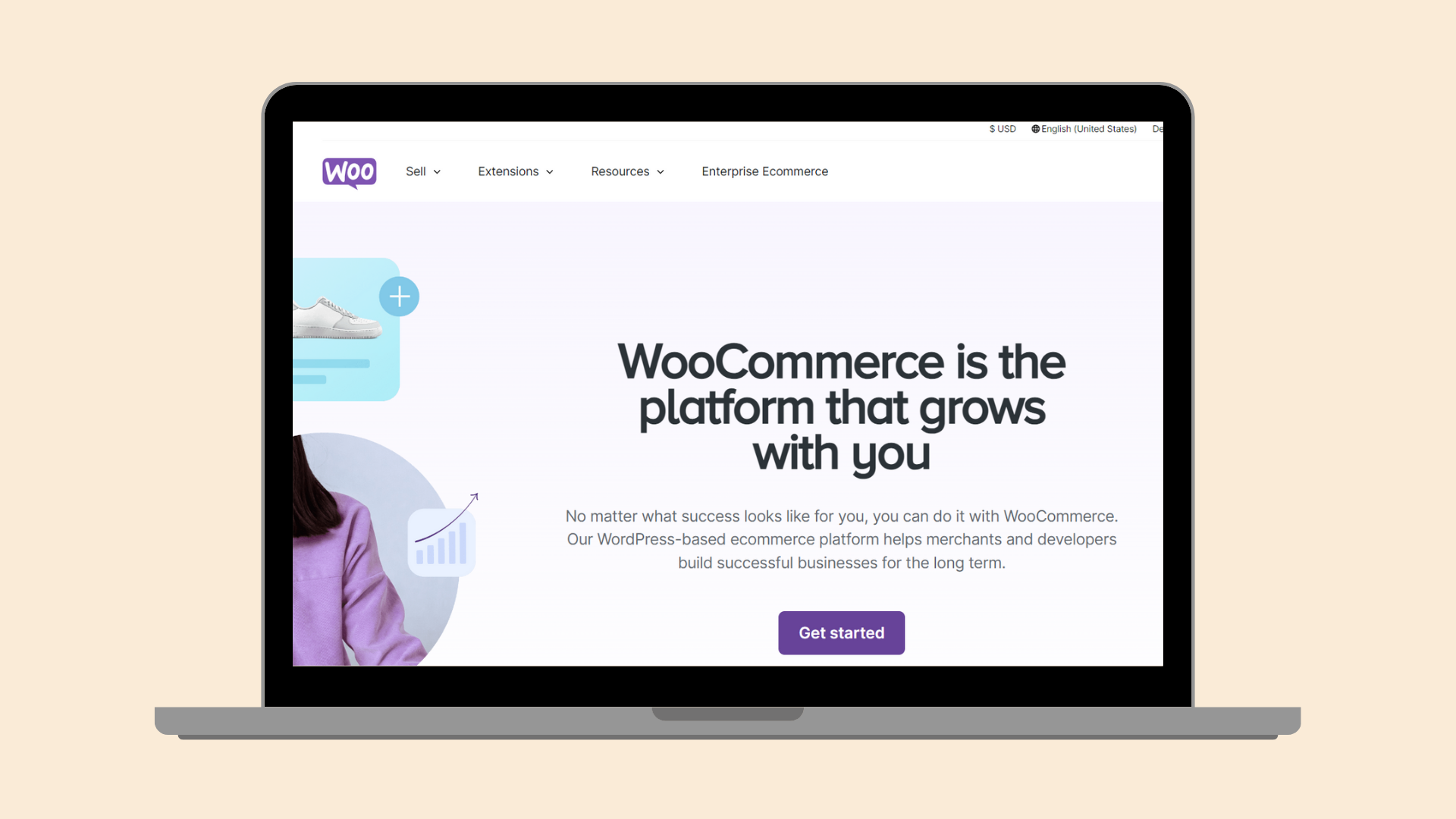
WooCommerce is an open-source e-commerce platform built for WordPress.
WooCommerce is a flexible, open-source e-commerce plugin for WordPress. Designed to integrate seamlessly with WordPress, it allows both small and large merchants to turn their websites into fully functioning e-commerce stores.
It's known for its simplicity to install and customize and for the vast marketplace that extends its native features.
Key Features
- Customization: Offers extensive options through themes and plugins.
- Content Integration: Perfect for businesses that want to combine e-commerce with blogs or portfolios.
- Community and Support: Strong community support plus resources such as guides and forums.
Pros
- Cost-Effective: Free to install, with numerous free themes and plugins.
- Flexibility: Highly customizable for those with web development skills.
- WordPress Integration: Ideal for users already familiar with the WordPress platform.
Cons
- Scalability: While scalable, high-traffic stores may require substantial hosting resources.
- Complexity: Customization and adding extensive functionality can require technical expertise.
- Maintenance: Being self-hosted, it requires regular updates and maintenance for plugins and themes.
6. Wix

Wix is an all-in-one e-commerce platform, known for its simplicity, making it an excellent choice for small businesses or solo entrepreneurs.
Known for its drag-and-drop functionality, Wix allows users, regardless of their technical expertise, to create aesthetically pleasing and functional online stores.
It provides a comprehensive suite for business growth, integrating marketing, and sales tools with a focus on simplicity and user experience.
Key Features
- Customizable Templates: Offers 900+ customizable website templates tailored for various industries.
- All-in-One Solution: Combines website building, e-commerce, and business management tools.
- SEO and Marketing: Integrated SEO tools and marketing solutions to promote your business effectively.
Pros
- Ease of Use: User-friendly interface that simplifies the creation and management of e-commerce sites.
- Versatility: Supports a range of business types including online stores, service businesses, and restaurants.
- Built-in Tools: Offers scheduling software, blogging capabilities, and powerful eCommerce solutions directly.
Cons
- Performance: Sites may load slower compared to dedicated e-commerce platforms, affecting user experience.
- SEO Limitations: While improving, Wix’s SEO options were historically seen as less robust than those of specialized platforms.
7. Squarespace

Squarespace is known for its visually appealing templates. If design is a priority, Squarespace can deliver beautifully designed online stores.
It’s designed to cater to various businesses, from small enterprises to larger operations looking to establish a compelling online presence.
Squarespace stands out for businesses and entrepreneurs seeking an elegant, user-friendly platform that not only supports selling online but also offers a strong foundation for branding and marketing.
Its ease of use and beautiful templates make it a great choice, though the cost and customization options may require consideration.
Key Features
- Designer Website Templates: Offers industry-leading templates that are customizable to fit your brand.
- E-Commerce Capabilities: Supports setting up an online store, scheduling appointments, selling products and services, and invoicing clients.
- Marketing Tools: Includes SEO tools, email marketing, and social media integrations to help grow your audience and engage with customers.
Pros
- User-Friendly: Intuitive drag-and-drop interface that makes website building accessible to everyone.
- All-In-One Platform: Combines website creation, e-commerce, and marketing tools in one package.
- Design-Forward: Highly aesthetic template designs that cater to a wide array of professional and personal use cases.
Cons
- Cost: While offering a free trial, continued use requires a subscription, which might be pricey for small businesses.
- Customization Limits: Some users may find the customization options limiting compared to open-source platforms.
8. Prestashop

PrestaShop is a robust e-commerce platform offering advanced customization options, scalability, and strong community support.
Renowned for its customization capabilities, PrestaShop supports online merchants with a comprehensive suite of tools to control, scale, and enhance their online business.
Key Features
- Customization: Thousands of modules and themes available for personalizing your brand experience.
- Scalability: Supports growing businesses from hundreds to millions in revenue.
- Community and Support: A strong community with over a million members, dedicated support team, and vast resources.
Pros
- Ownership: Retailers gain full ownership of their online store and all its data.
- Integration: PrestaShop integrates with various payment and shipping methods, enhancing the shopping experience.
- Multilingual: Supports multiple languages and currencies, easing the process of setting up a global store.
Cons
- Technical Expertise: Effective customization and usage might require knowledge of programming languages.
- Maintenance and Security: Being self-hosted, it requires regular updates for security and maintenance.
- Performance: High-traffic might demand substantial hosting resources, impacting site speed.
Conclusion
Picking the right e-commerce platform depends on your specific business needs, resources, and objectives.
While Shopify and Wix serve as user-friendly options for beginners, Magento and Salesforce Commerce Cloud cater to businesses ready to scale up.
Platforms like BigCommerce offer a plethora of built-in features, WooCommerce ties in perfectly with WordPress-based operations, and Squarespace’s templates make it ideal for design-focused businesses.
However, if you desire a data-centric platform with a unique blend of features, Sanka may be your ideal choice.
Offering market research, analytics, CRM, order management solutions, and more, Sanka shines as a platform designed to streamline your operations and boost your profits.
No matter which platform you select, remember that the best e-commerce platform is the one that aligns seamlessly with your business model and goals, and one that optimizes processes from the first customer click to product delivery at their doorstep.

